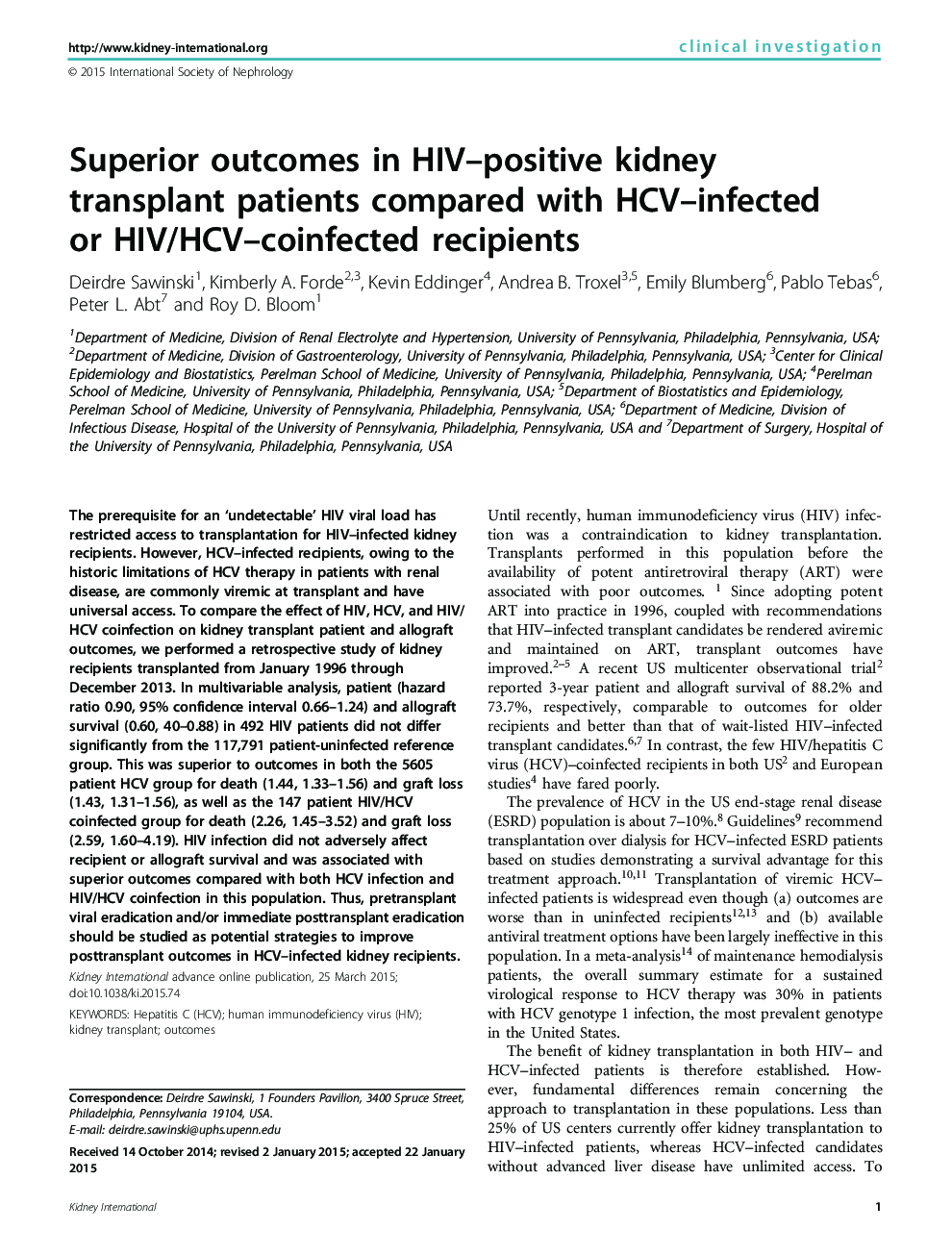| Article ID | Journal | Published Year | Pages | File Type |
|---|---|---|---|---|
| 6161341 | Kidney International | 2015 | 9 Pages |
Abstract
The prerequisite for an 'undetectable' HIV viral load has restricted access to transplantation for HIV-infected kidney recipients. However, HCV-infected recipients, owing to the historic limitations of HCV therapy in patients with renal disease, are commonly viremic at transplant and have universal access. To compare the effect of HIV, HCV, and HIV/HCV coinfection on kidney transplant patient and allograft outcomes, we performed a retrospective study of kidney recipients transplanted from January 1996 through December 2013. In multivariable analysis, patient (hazard ratio 0.90, 95% confidence interval 0.66-1.24) and allograft survival (0.60, 40-0.88) in 492 HIV patients did not differ significantly from the 117,791 patient-uninfected reference group. This was superior to outcomes in both the 5605 patient HCV group for death (1.44, 1.33-1.56) and graft loss (1.43, 1.31-1.56), as well as the 147 patient HIV/HCV coinfected group for death (2.26, 1.45-3.52) and graft loss (2.59, 1.60-4.19). HIV infection did not adversely affect recipient or allograft survival and was associated with superior outcomes compared with both HCV infection and HIV/HCV coinfection in this population. Thus, pretransplant viral eradication and/or immediate posttransplant eradication should be studied as potential strategies to improve posttransplant outcomes in HCV-infected kidney recipients.
Related Topics
Health Sciences
Medicine and Dentistry
Nephrology
Authors
Deirdre Sawinski, Kimberly A. Forde, Kevin Eddinger, Andrea B. Troxel, Emily Blumberg, Pablo Tebas, Peter L. Abt, Roy D. Bloom,
